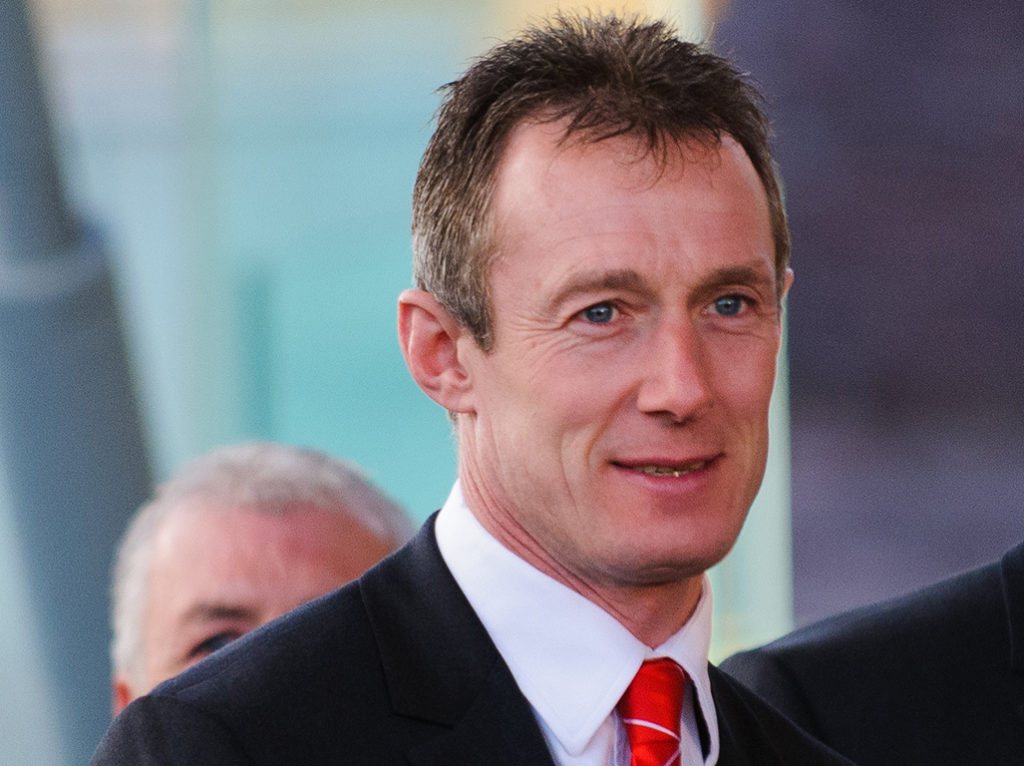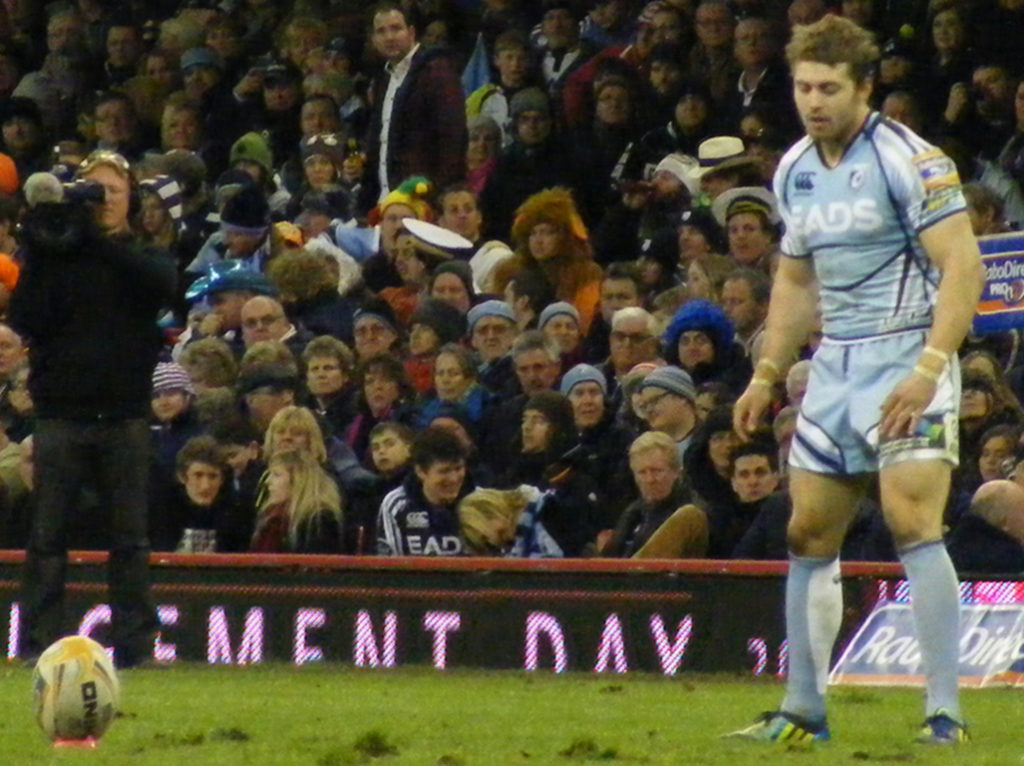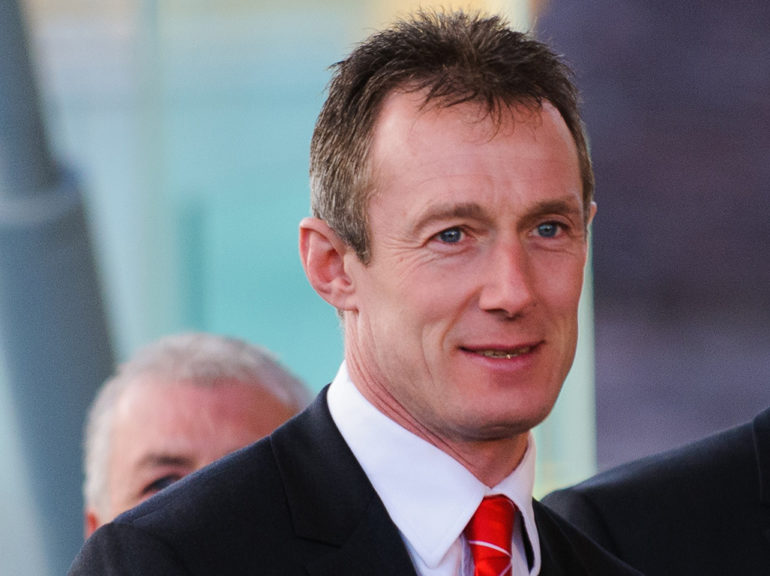HE couldn’t have been more right. He couldn’t have been more wrong.
When Rob Howley said that Wales hadn’t become a bad team overnight, he had unwittingly reiterated what Welsh rugby fans have thought for a while now — this Wales side has become stagnant, and not just this year, but for several years.
Let’s look at some numbers. Wales has played 20 matches since the win over England at the last Rugby World Cup, winning eight and drawing one. It doesn’t matter whether you’re the Wales coach or Jeff down the pub, those numbers do not suggest progress.
Gatland’s Wales (Howley may be in charge at the moment, but it is still very much Gatland’s Wales) has always been an inconsistent proposition. It’s just that now inconsistent is far and away the default setting.
Since the Gatland/Howley era begun, Wales has had a winning percentage of 53% — surprisingly low for a team that won three Six Nations titles, including two Grand Slams, in six seasons.
That’s because for every 2008 clean sweep, there has been a 2010 campaign where the only victories came against Italy and with that ridiculous 17-point comeback at home to Scotland.
While there have been three euphoric victories over South Africa (twice) and Australia, there have been 32 defeats against the Big Three, many in heartbreaking circumstances.

Wales fans are grateful for what this coaching set-up has given the nation. A country that was all too accustomed to defeat (2005 Grand Slam aside) was suddenly dining at the top table, on regular feasts of victories over England and Six Nations titles.
But now is the time for further evolution, not the alarming regression that fans have been paying to watch. It’s not enough just to look back at 2013 with rose-tinted spectacles.
Howley’s decision yet again to stick with the same “experienced” side that was roundly humbled by Scotland smacks of someone afraid to change. Moreover, fans have grown increasingly tired of the soundbites used by management when giving the reasons behind the selections.
Fans want to see something — anything — that suggests Wales are trying to get out of this rotten rut.
We do not see what goes on behind closed doors at Wales training. For all we know, Sam Davies and the seven new caps might have forgotten how to pick up a rugby ball in training (that would at least provide some concrete evidence as to why they are not entrusted with the three feathers).
Fans want to see something — anything — that suggests Wales are trying to get out of this rotten rut. As it is, the strategy seems to be to pick the same team every time, and simply hope that they might achieve something different.
Even a narrow win over Ireland would not assuage the doubters, so disillusioned are supporters. It is possible that Wales could sneak a tight victory on Friday night, but unless it is achieved with exciting, swashbuckling rugby, the doubts won’t go away.
If the result goes the way of Ireland, a team full of invention who pulled off wins over New Zealand, Australia, and South Africa in the space of six months last year, the clamour for change in Wales will only increase.
The Wales management’s fear of change can be seen in a number of back-line selections.
Leigh Halfpenny is as solid a full-back as they come, but of late has offered next to no attacking threat. In contrast, Liam Williams shone in the position out in New Zealand, and his form has led to Saracens — Europe’s best rugby team — signing him up for next season.
Yet Howley et al. have steadfastly refused to switch the two, even though Halfpenny looked far more threatening off the wing in a rare outing there during the autumn internationals.

The make-up and use of Wales’ bench is another area where the management has shown minimal flexibility.
Jamie Roberts has been a fine player and a fine servant for Wales, but if he is not starting — and if Wales is looking to play exciting rugby — there is no point having him on the bench. He is unlikely to change a game in the final 10 minutes against tired defence.
However, someone like Owen Williams, Steff Evans or (from outside the squad) Ashley Beck could come on and change the game, and what’s more their club form has earned them the right to be considered seriously.
Sam Davies has at least become a mainstay on the bench, but is seldom used wisely. Against Scotland, when all was faltering around Wales, Davies was thrown on only as a last resort with 11 minutes to go.
It brought back memories of the final days of James Hook’s Wales career, when he would be thrown on at fly-half amid a calamity, with the management hoping for him to conjure up a miracle.
If Wales score more than 30 points and topple Ireland in a pulsating game of attacking rugby, the doubters will be silenced. But alas, many fear that the performance, as with the team, will be same old, same old.



